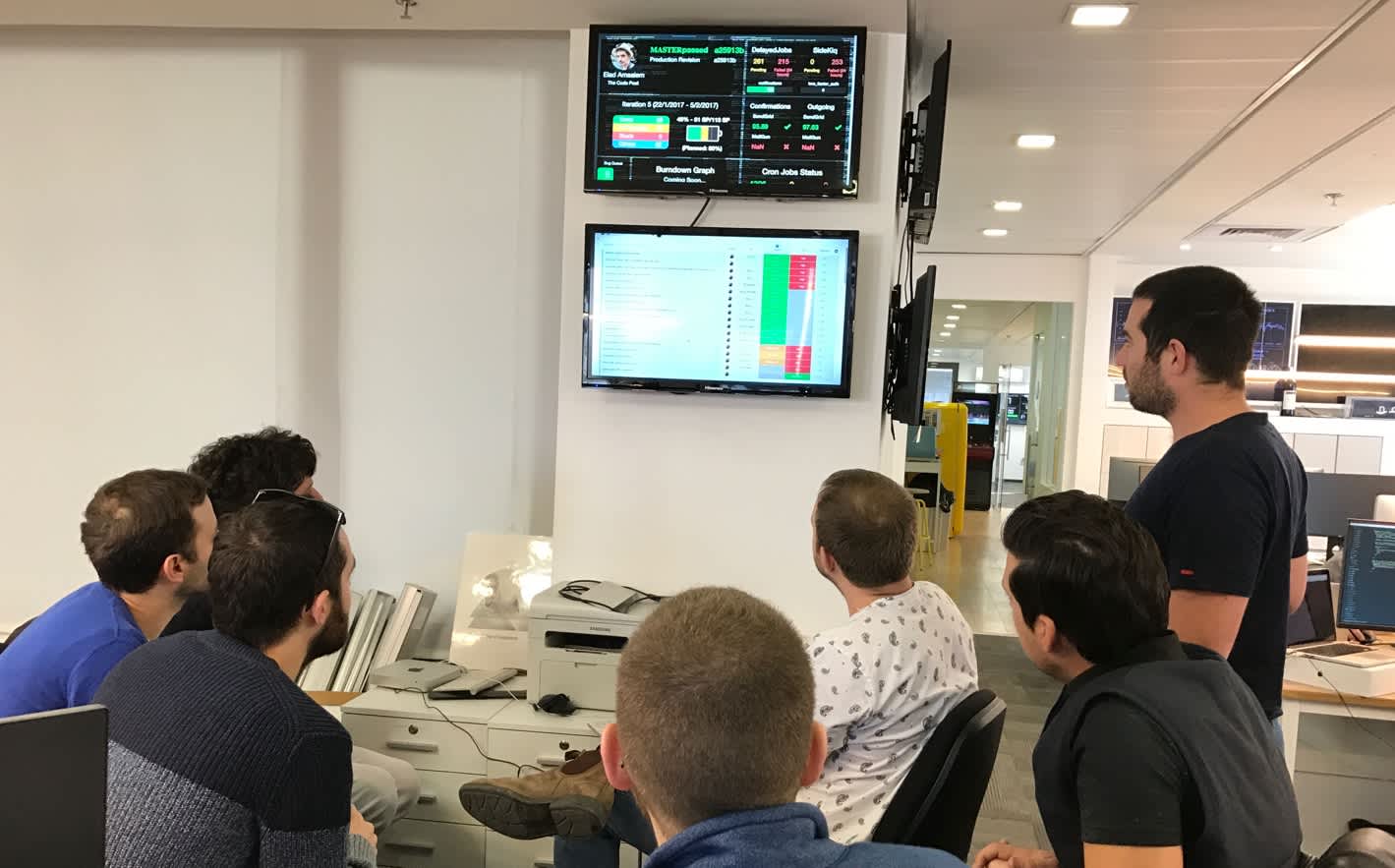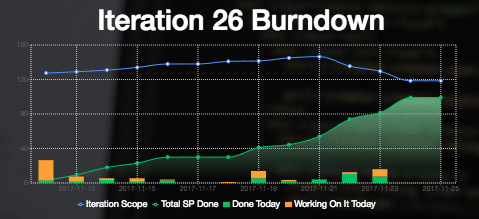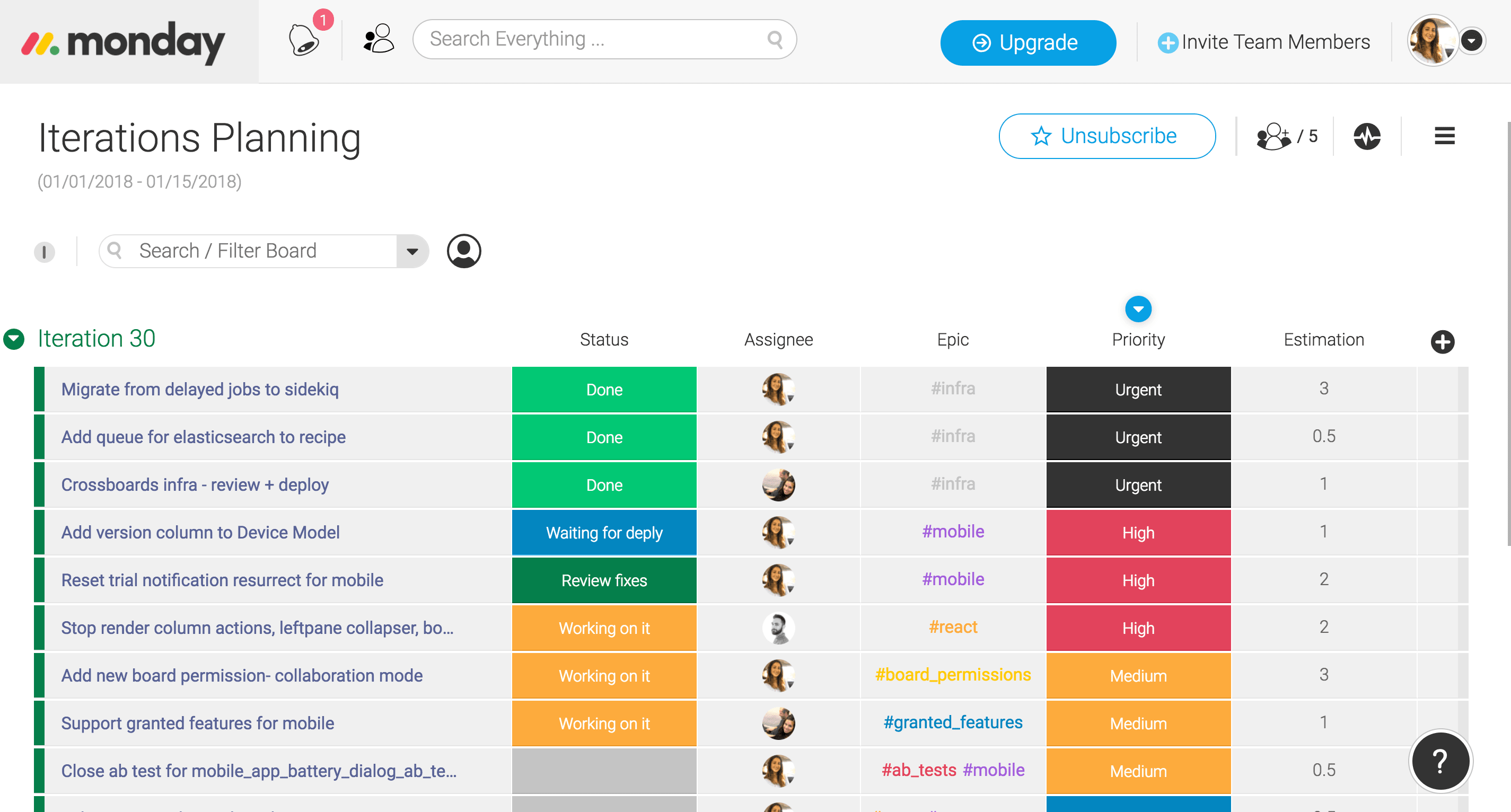

4 ways to boost your scrum team's daily stand-up meetings
Communicate progress better, create healthy beat and make your team more engaged
Many teams are conducting daily stand-ups every day (there are probably a big amount of people in the world that are in a daily right now :)).
Although the concept is simple - sync the team and detect impediments, conducting a daily in an effective and productive way is not so easy (we're all real people after all..).
Also, since this meeting happens every day, it also can achieve additional important goals in an indirect way.
Although the concept is simple - sync the team and detect impediments, conducting a daily in an effective and productive way is not so easy (we're all real people after all..).
Also, since this meeting happens every day, it also can achieve additional important goals in an indirect way.

Here are 4 practices that can help you get a lot more from your daily meetings:
Communicate progress and deadlines in a clear way
Almost everyone that practice Scrum knows the the following pattern for team members update in the daily meeting:
1. What did I do yesterday?
2. What I'm planning to do today?
3. Is there anything holding me back?
While this is good and helps to keep the meeting short and focused, I sometimes find myself hearing the same updates, day after day - for instance: "I'm continuing to work on the integration with an external service to our product".
These kind of updates usually indicate that the task wasn't broken down into smaller pieces (or that the team member that works on it took many small tasks and combined them into one big task).
To encourage people executing their tasks in a more agile way, your daily updates should include clear scope and deadline (preferably, small as possible). For instance: "Yesterday I've completed the authentication to the external API and today I'm going to complete the first request of information from it".
This way, it's clear what progress has been made and what are the actual goals for the day - goals that would actually allow the team to understand if they are on track or not, each and every day.
1. What did I do yesterday?
2. What I'm planning to do today?
3. Is there anything holding me back?
While this is good and helps to keep the meeting short and focused, I sometimes find myself hearing the same updates, day after day - for instance: "I'm continuing to work on the integration with an external service to our product".
These kind of updates usually indicate that the task wasn't broken down into smaller pieces (or that the team member that works on it took many small tasks and combined them into one big task).
To encourage people executing their tasks in a more agile way, your daily updates should include clear scope and deadline (preferably, small as possible). For instance: "Yesterday I've completed the authentication to the external API and today I'm going to complete the first request of information from it".
This way, it's clear what progress has been made and what are the actual goals for the day - goals that would actually allow the team to understand if they are on track or not, each and every day.
Use your dailies to solve process issues and to create healthy habits
Daily standup is a powerful meeting as it happens every day. As such, it can be a great platform for creating healthy habits and clear beat and cadence.
Our team faced a problem where most of the iteration's tasks were usually closed on the end of the iteration.
So we decided to create a burnup graph, that will also specify for each day how many tasks have been started this day (Orange bars) and how many tasks were done each day (Green bars).
From that point on, on each we started going over the graph as a team on our dailies and check:
1. Do we have constant progress? (slope of the burnup should be 45 degrees in the optimal case)
2. How many new tasks did we start today as a team? (making sure that each team member have only one/two task at any given moment)
This raised the awareness for this problem and allowed us to put more focus and improve it as a team.
Our team faced a problem where most of the iteration's tasks were usually closed on the end of the iteration.
So we decided to create a burnup graph, that will also specify for each day how many tasks have been started this day (Orange bars) and how many tasks were done each day (Green bars).
From that point on, on each we started going over the graph as a team on our dailies and check:
1. Do we have constant progress? (slope of the burnup should be 45 degrees in the optimal case)
2. How many new tasks did we start today as a team? (making sure that each team member have only one/two task at any given moment)
This raised the awareness for this problem and allowed us to put more focus and improve it as a team.

Use a visual Scrum board to update in-context and keep everyone accountable
Having everyone engaged and actively participate in the daily meeting can be challenging - some team members are drawn to their computers, others to their phones and so on.
I think that the key point for making everyone engaged is to have a shared iteration board, which is visible to everyone and to define a clear, repeatable way for daily updates.
Making updates clear and in-context
In the daily itself, people should update on concrete stories/tasks in the board, rather than talking by heart. This make the update a lot more focused and allows others to understand the update in context of the relevant task.
Repeatable way for updates
When people understand it's expected from them to go over their tasks during the daily, it makes them care about their tasks clarity and definition of done. Also, it motivates them to update the board constantly and come more prepared for the daily.
Making updates clear and in-context
In the daily itself, people should update on concrete stories/tasks in the board, rather than talking by heart. This make the update a lot more focused and allows others to understand the update in context of the relevant task.
Repeatable way for updates
When people understand it's expected from them to go over their tasks during the daily, it makes them care about their tasks clarity and definition of done. Also, it motivates them to update the board constantly and come more prepared for the daily.

Take it "offline" - keep your dailies short
The daily meeting is for the team to sync on progress and raise flags on problems and blockers. It should be kept short and concise, otherwise people tend to loose attention.
Don't solve problems or deep dive into discussions during the daily. Rather, when an issue or more in-depth question raises, just coordinate who should take it offline, after the daily.
As a productivity hack, we defined that we answer/handle all the issues from daily straight after, in the relevant forum (this way, only the most relevant people deals with it, while others can continue with their day).
Don't solve problems or deep dive into discussions during the daily. Rather, when an issue or more in-depth question raises, just coordinate who should take it offline, after the daily.
As a productivity hack, we defined that we answer/handle all the issues from daily straight after, in the relevant forum (this way, only the most relevant people deals with it, while others can continue with their day).
To sum up - an effective daily can help your team to be more productive, execute better and eventually make your work more impactful.






